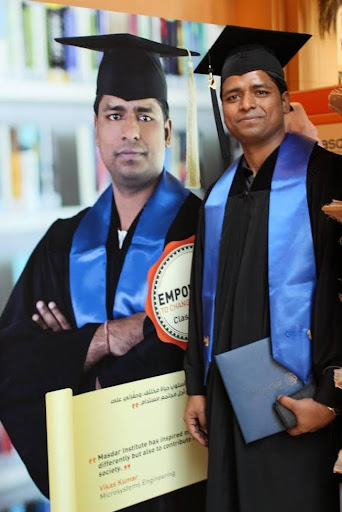Breakthrough Research on Enhancing Material and Mechanical Properties of Semiconductor and Alloy for Energy Applications

Vikas Kumar, a top-of-his-class graduate from the University of Alberta, one of Canada’s top engineering schools, is a preeminent researcher in materials engineering and semiconductor technology and is revolutionizing the field with his pioneering research. His recent exploration into the effects of strain rate-dependent pre-deformation on the tribological properties of semiconductors and alloys is a testament to his profound contributions to materials science.
Kumar’s meticulous investigation into the changes in work function to comprehend the effects of strain rate-dependent pre-deformation is particularly commendable. His thorough research delves deep into how varying tensile strain rates influence the hardness, electron work function (EWF), and tribological properties of semiconductor materials and alloys. By concentrating on these parameters, Kumar’s study offers invaluable insights into the resilience and performance of these materials under diverse conditions, instilling confidence in the reliability of his research.
A cornerstone of Kumar’s research is the comprehensive analysis of the electron work function (EWF). This critical parameter is instrumental in determining a material’s electronic properties and can divulge substantial information about the genesis and behavior of defects. Kumar’s study discovered a correlation between changes in the electron work function and the formation of defects, providing a more profound understanding of how these defects affect the material’s hardness and tribological properties.
In conjunction with EWF analysis, Kumar employed advanced electron microscopy to scrutinize the microstructures of the deformed samples. This microstructural examination was pivotal in identifying defects and understanding their impact on the material’s performance. The correlation between EWF changes and defect formation, underscored by Kumar’s analyses, elucidates how this parameter can yield significant information, aiding in understanding defect formation and its influence on material properties.
Kumar’s research on strain rate-dependent pre-deformation and its impact on semiconductor and alloy tribological properties has far-reaching implications for materials science. By offering a more profound understanding of how strain rates influence material properties, his work lays the groundwork for creating more robust and efficient materials for various high-tech applications.
The innovative approach of using electron work function as a parameter to study material defects and performance not only augments the fundamental understanding of material behavior but also provides practical insights for the semiconductor industry. This could potentially catalyze the development of superior-performing electronic devices, highlighting the practical applications of Kumar’s findings and inspiring hope for the future of semiconductor technology.
Kumar’s work on the effects of strain rate-dependent pre-deformation on the tribological properties of semiconductors and alloys is evident to his unwavering commitment to advancing materials science and addressing complex engineering challenges. As an innovative leader and a trailblazer, Kumar continues to inspire and shape the future of semiconductor technology. His contributions have cemented his position as an invaluable asset to the global material engineering society. His work is a beacon of innovation, illuminating the path for future advancements in semiconductor technology addressing the need for high material and mechanical properties for alloy and semiconductor for energy applications in utility and automative industry.





